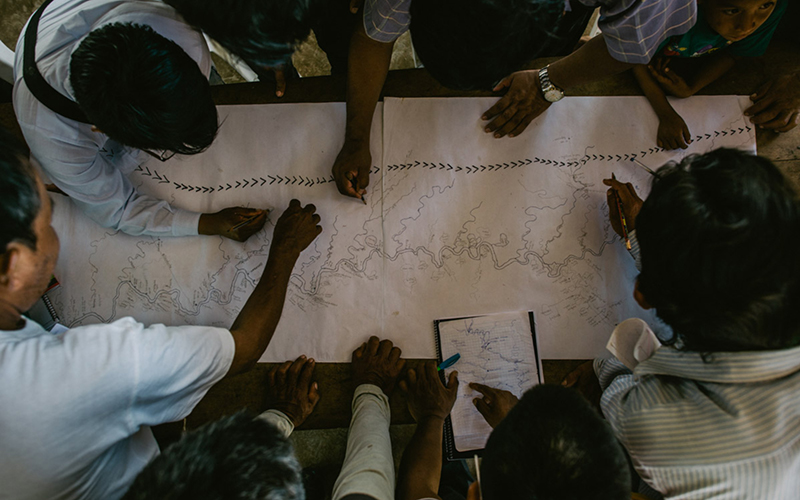DPU Working Paper - No. 211
Territorial governance across worlds: cosmopolitics and autonomous design lessons from the Wampis Nation

19 January 2022
By Domingo Alejandro Torero Gamero
Contemporary research on anthropology, ecology, geography, and environmental sciences establishes that indigenous peoples’ knowledges and practices contribute to the Amazon’s rainforest sustainability. Safeguarding this biome is extremely relevant amid the current environmental crisis. However, in the last decades, the struggle for indigenous territorial rights in Peruvian Amazonia has been characterised by an ongoing conflict with extractive industries and ambivalent recognition from the Peruvian state. The nation-state’s territorial governance systems (land policies, norms, discourses, and practices) keep prioritising extractive sectors and do not secure indigenous peoples’ lives, autonomy and self-determination rights.
Within this context, this paper draws from critical design studies and political ontology to enquiry how the creation of territorial governance systems can ensure the socioecological sustainability of Amazonia. The analysis is divided into two main sections. The first section (chapter 3) explores how explores how territorial governance systems in the Peruvian Amazon have been designed and implemented by the state, illustrating how the region has been subjected to ontological occupation and territorial coloniality. A second section (chapter 4) draws from the experience of the Wamp s people and their Autonomous Territorial Government through the lens of autonomous design.
The research finds a strong interconnection among the sustainability of Amazonia, the maintenance of indigenous knowledges, and the quest for indigenous autonomy. Therefore, the denial of indigeneity in Peru ends up being an existential threat. Moreover, by highlighting relevant lessons from Wamp s practices, this research provides an insight into how indigenous autonomies, knowledges, and ontologies open relevant paths towards the rainforest’s sustainability. Based on these findings, this working paper proposes that pursuing the re-design of territorial governance systems in the Peruvian Amazon, as autonomous indigenous creations, is a critical endeavour for sustaining life at local, regional, and even planetary scales.
Members of different communities of the Wampis Nation mapping the traditional use of territory along the meandering Morona river.
Photo credit: Jacob Balzani Lööv (2016), all rights reserved.
 Close
Close

